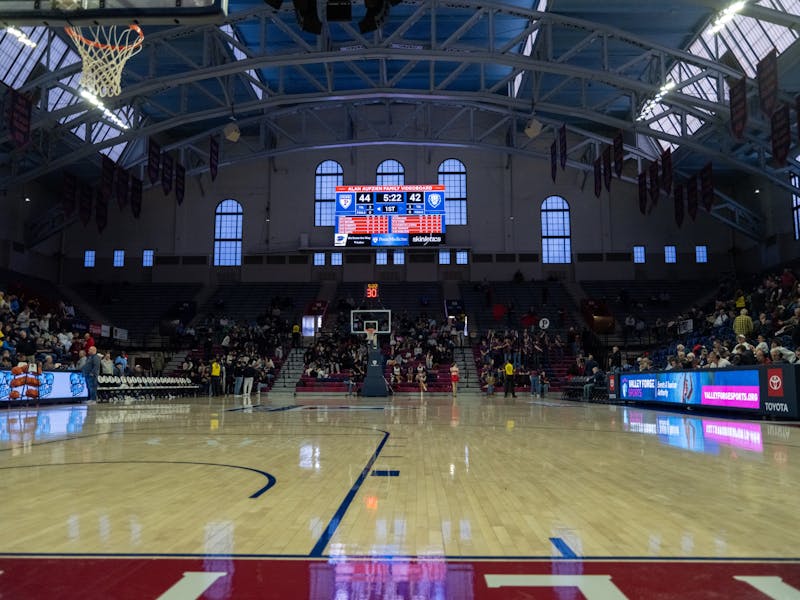Who's honoring Al Gore now? These days it seems like just about everybody is. Last Friday, Gore - along with the Intergovernmental Panel on Climate Change - won the Nobel Peace Prize for their efforts "to build up and disseminate greater knowledge about man-made climate change, and to lay the foundations for the measures that are needed to counteract such change."
It's been a bountiful year for Mr. Gore: his global-warming documentary An Inconvenient Truth netted two Oscars back in February and March saw the former vice president add an Emmy to his trophy shelf.
But does Gore deserve this most recent accolade? According to Earth and Environmental Sciences professor Robert Giegengack, the answer is no. I caught up with Giegengack at a presentation on transuranic waste. Perhaps sensing the lecture's toxicity to English majors, he leaned over my shoulder and whispered with mock seriousness, "Be careful. Don't breathe the air."
Giegengack was distinctly less charming when it came time to talk Gore. "If I had been on the Nobel Peace committee," he said, "I don't think I would have seriously considered Al Gore."
Look no further than An Inconvenient Truth to understand why. "I think [Gore] missed a splendid opportunity to produce a sober, objective film," Giegengack said. "Instead, he made a political, alarmist diatribe."
Giegengack takes issue with the Gorian doctrine that human carbon emissions are responsible for an increase in global temperature. At the risk of gross simplification, Giegangack believes rather that the earth's constantly fluctuating temperature is driving carbon levels in the atmosphere. Colleague Ed Doheney summarized Giegengack's objections: "[Gore's] got his independent and dependent variables all mixed up."
It's difficult to know who to trust: established scientists or the man who invented the Internet.
The professor's beef with Gore is well- documented. In February's Philadelphia Magazine, Giegengack judged Gore's alarmist techniques to be "no less than the scare tactics used by people like Karl Rove."
Giving Gore the Nobel does smack of politics, a way for the liberal elite to strike back at the now-departed Rove and the rest of the Bush administration. Yet things need to be kept in perspective. Gore's scare tactics might lead to Kyoto and costly environmental regulation, while Rove's scare tactics have already given us the Patriot Act and Iraq. Surely the sins of the Bush administration have had far more sinister consquences than any that Gore has committed in his zeal to change the way people and governments think about the environment.
It is right that the world's most prestigious prize be a critique of power. In 2005, British playwright Harold Pinter won the Nobel for literature and excoriated U.S. foreign policy in his acceptance speech. "You have to hand it to America," Pinter scoffed. "It has exercised a quite clinical manipulation of power worldwide while masquerading as a force for universal good. It's a brilliant, even witty, highly successful act of hypnosis."
Gore has spearheaded the fight against an equally pervasive hypnosis under which we blindly believed for centuries that the Earth would be fine no matter what humans did. For that he deserves all the credit in the world. His science may be flawed, but people are now thinking and debating our planet's future because of Al Gore and that is a good thing.
So what's next for Gore? First of all, he must resist the temptation to run in 2008. Gore's defeat in 2000 may have been heartbreaking, but the silver lining from that defeat has been truly magnificent. As a private citizen, Gore has made a greater positive impact than any elected official. Like it or not, he is our foremost public intellectual and ought to continue his political rehab.
To make a presidential bid would be to confirm many of the criticisms of the Nobel Prize. "The Peace Prize is especially political," said Giegengack, who noted that it has been awarded to such peace-loving luminaries as Yasser Arafat. Running would also cripple his message of awareness with partisanship. Gore must prove himself a better man - even if his heart's desire is for the Oval Office. As Doheny quipped: "I didn't know they gave the Nobel Prize for acting."
True. But Gore has chosen his part and must play it until the curtain falls.
Stephen Krewson is a College sophomore from Schenectady NY. His e-mail is krewson@dailypennsylvanian.com. The Parthian Shot usually appears on Fridays.
The Daily Pennsylvanian is an independent, student-run newspaper. Please consider making a donation to support the coverage that shapes the University. Your generosity ensures a future of strong journalism at Penn.
DonatePlease note All comments are eligible for publication in The Daily Pennsylvanian.








